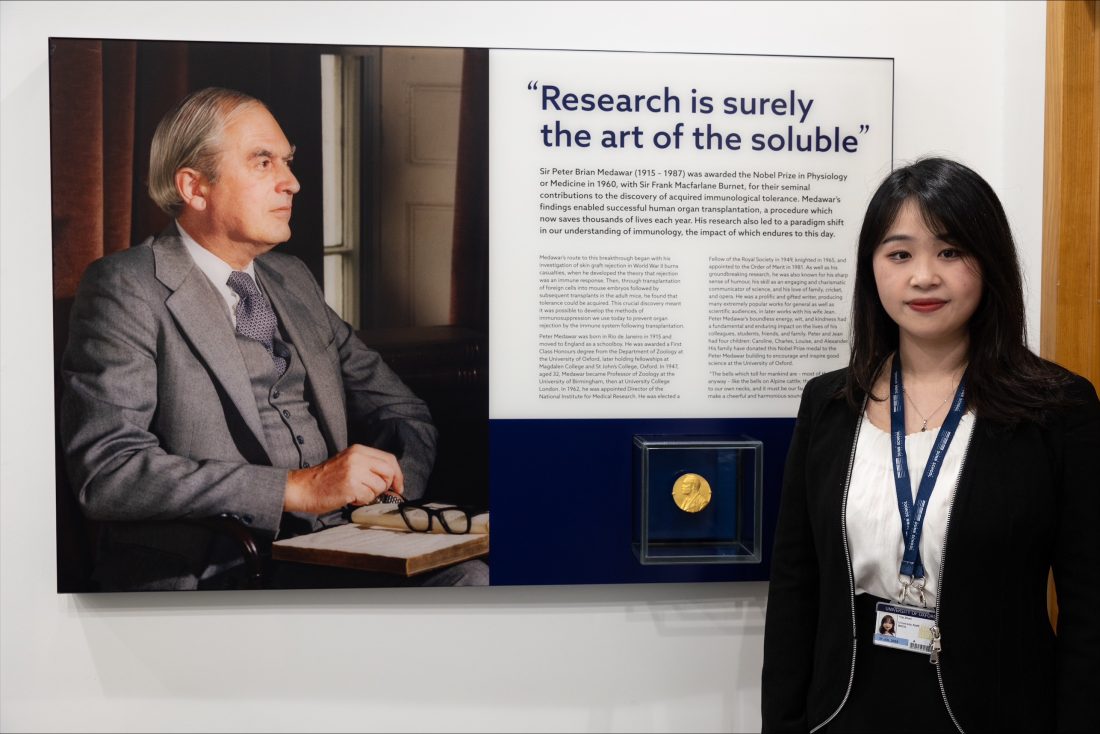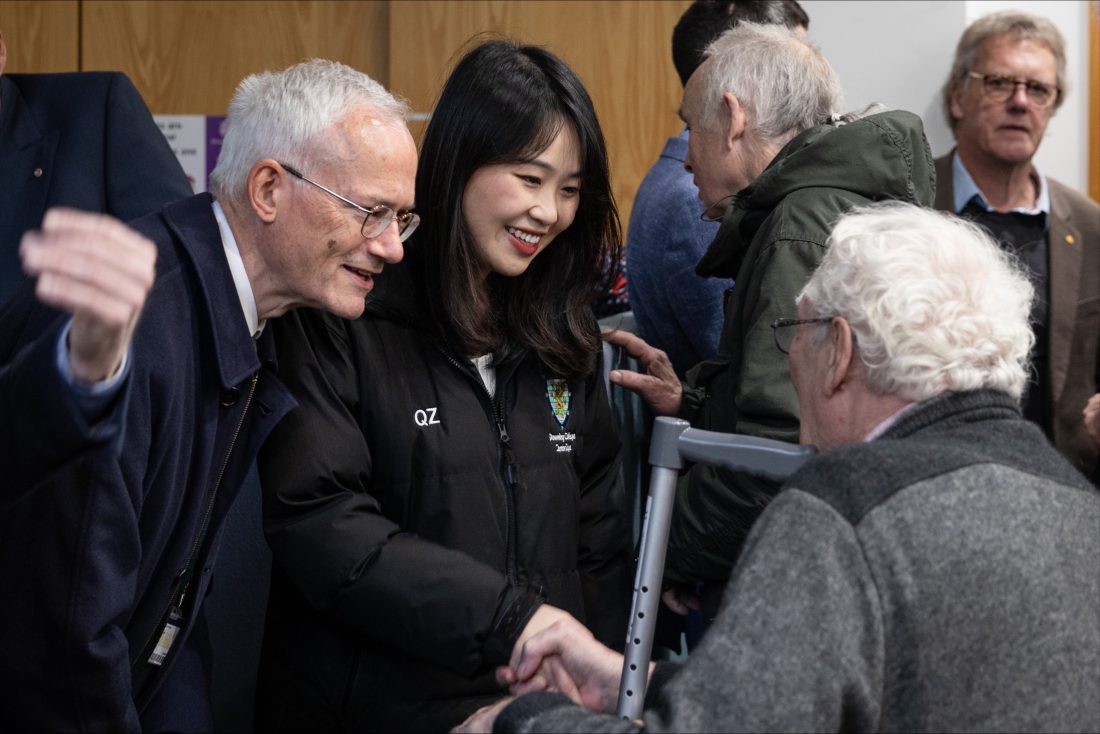Dr. Yiqi Zhao: Innovator in Virus-Host Interactions

Dr Yiqi Zhao alongside Peter Medawar’s Nobel Prize medal, on display in the Medawar Building, University of Oxford.
Yiqi’s research pioneers how our immune system interacts with viruses. Published in Nature, she studied the complex interplay between viruses and their hosts, focusing on the human protein TRIM5α. Known for combating RNA viruses like HIV-1, TRIM5α also fights against DNA viruses such as poxviruses, including monkeypox and variola virus (the cause of smallpox). Yiqi found that TRIM5α binds to the virus capsid protein L3, reducing virus replication and activating innate immunity. However, poxviruses counteract this by degrading TRIM5α via virus protein C6 and recruiting cyclophilin A (CypA) to antagonise TRIM5α-mediated modification of L3. Her findings suggest that drugs like cyclosporine A (CsA) and its derivatives can inhibit the pro-poxviral activity of CypA. Collaborating with Dr Yongxu Lu, she also demonstrated that the enzyme HDAC5 is important to innate immunity and has anti-poxvirus effects. Her research is very important for the development of novel anti-viral therapies.
Yiqi’s journey into immunology began with her undergraduate and master’s studies in Biology at Imperial College London. She developed a deep interest in understanding how tiny viruses can affect host cells. “Learning about the immune system and pathogens was fun on their own, but my interest grew exponentially when these two fields were brought together,” says Yiqi. This led her to pursue a PhD at Cambridge, where she studied cellular responses to vaccinia virus under the supervision of Prof Geoffrey Smith. Her PhD research focused on how host proteins either restrict or facilitate virus infection, leading to the discovery that the inhibitors of CypA could be repurposed as anti-poxviral drugs.
Looking ahead, Yiqi is committed to staying in academia and hopes to establish her own lab. She aims to further investigate virus-host interactions and work with a variety of viruses, including those requiring higher biosafety levels. Yiqi’s goal is to translate her research findings into clinical applications, developing innovative treatments for viral infections. “I’m still very set in staying in academia because I love doing research, and not just for basic science,” she explains. “I’m also very interested in how we can use the knowledge we gain to develop practical applications in the clinical setting.”
We are proud of Yiqi and look forward to her continued contributions to the field of immunology and Dunn School community.

Dr Yiqi Zhao and Professor Geoff Smith with members of the Medawar family.
Written by Isaac Wong
Smith group
Studying the mechanisms by which orthopoxviruses suppress innate immunity
Infection and Immunity
Several Dunn School groups use a range of approaches to investigate antigen presentation and immune regulation during health and disease and study the mechanisms that enable bacterial and viral pathogens to invade and proliferate inside their hosts.
More news
The latest news stories and research highlights from the Dunn School.